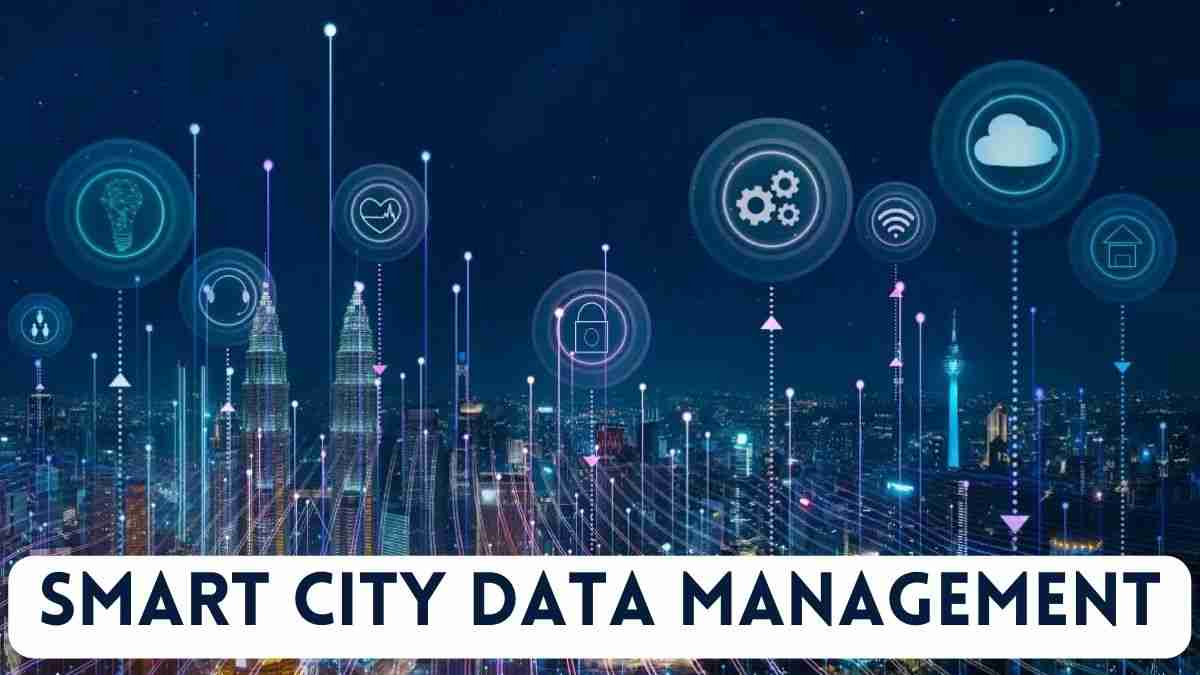Smart City Data Management: A smart city can be defined as any urban area which uses advanced technology and data analysis to enhance quality of life for its citizens, promote sustainability and make more efficient use of resources. Achieve such goals requires integration among various technologies and data systems – with data management playing a pivotal role by collecting, storing, analysing and disseminating information for decision making while encouraging innovation.
Read all the Drone Regulations: Drone Regulations: All the regulations to fly a Drone
Data Sources
Smart City Data Management: Smart cities collect data from a variety of sources, including sensors, cameras, and citizen-generated data. Some examples of data collected in smart cities include:
- Environmental data, such as air and water quality
- Transportation data, including traffic flow and public transportation usage
- Energy usage data from buildings and infrastructure
- Demographic data, such as population density and demographics
- Crime data
- Social media data
Data Management Systems
Data management systems collect, store, and analyze data from various sources in a smart city. There are several types of data management systems, including:
- Real-Time Data Management Systems: Real-time data management systems collect, store and analyze information in real time for prompt decision-making and event response.
- Big data management platforms: These platforms are specifically designed for processing massive volumes of information derived from multiple sources and designed with scale in mind to facilitate advanced analytics capabilities.
- Cloud-based data management systems: These programs store information remotely on remote servers for easier access and sharing between various departments and organizations.
Examples of popular data management systems used in smart cities include IBM’s Intelligent Operations Center and Cisco’s Smart+Connected Communities platform.

Data Analysis and Visualization
Data analysis and visualization tools play a pivotal role in helping smart cities make sense of all of the vast amounts of information generated within smart cities. Analytic methods used include statistical analysis, machine learning, artificial intelligence as well as visualization tools like heatmaps or dashboards which present data in an easily consumable form for users.
Data visualization tools such as Esri’s ArcGIS platform and Tableau’s data analysis software may also be employed.
Everything about Artificial General Intelligence: Artificial General Intelligence: Everything about AGI
Data Security and Privacy
Data security and privacy is of utmost importance in smart cities. To safeguard it, measures like encryption, secure access protocols and regular audits have been put in place. But still there may be challenges and potential risks related to smart city data management – including:
Maintain Individual Privacy Rights: Smart cities collect a lot of personal data about its residents, which presents privacy issues and the possibility for misuse. To address these concerns and ensure data security.
Cybersecurity: Because smart cities rely so heavily on technology, they leave themselves open to cyber attacks.
Data obtained from various sources must remain reliable and complete.
Conclusion
Data management is crucial to smart cities. We collect store analyze, and share data from diverse sources to support decision-making and innovation. It’s also crucial to protect data. As smart cities grow, data management will become more crucial to their growth and operation. Smart cities will enhance data management technology and prioritise data security and privacy.
Read These Articles Too:




